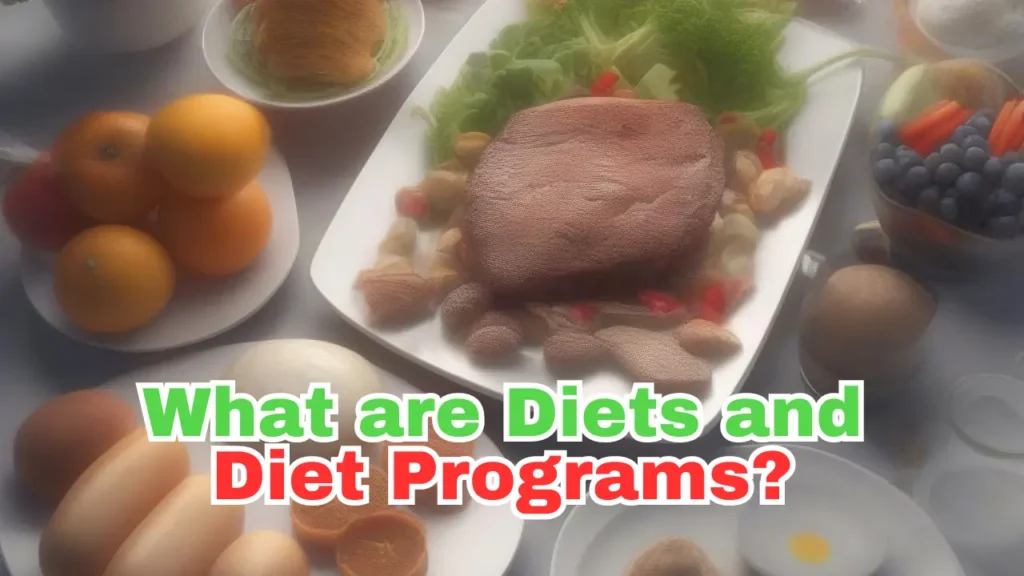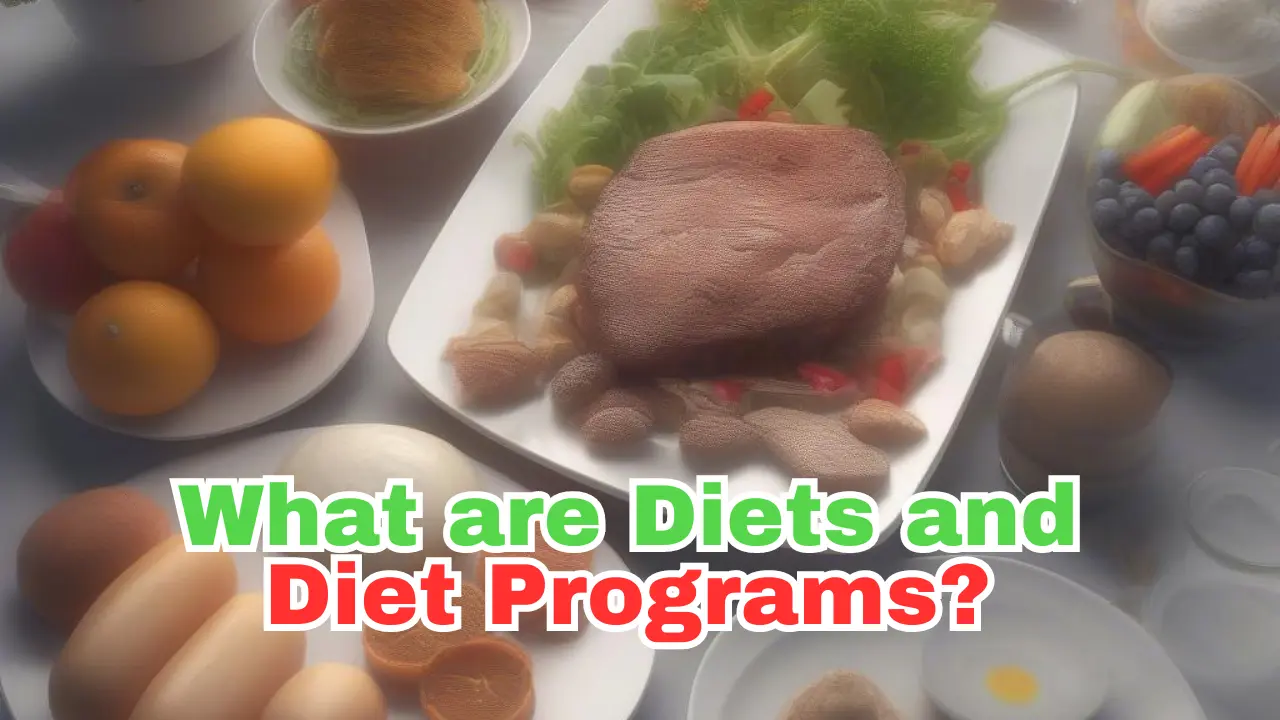In today’s health-conscious era, diets and diet programs have become ubiquitous. From fad diets to tailored meal plans, the sheer volume of options can be overwhelming. This comprehensive guide will delve into the world of diets, exploring their types, benefits, potential drawbacks, and how to choose the right one for your individual needs.

Understanding Diets:
A diet refers to the types and quantities of food and beverages consumed by an individual. It encompasses the nutritional value, calorie intake, and meal frequency. Diets can be classified into two main categories:
- Prescriptive Diets: These diets are designed for specific medical conditions or health goals, such as managing diabetes, reducing cholesterol, or losing weight. They are typically prescribed by healthcare professionals and involve strict adherence to guidelines.
- Non-Prescriptive Diets: These diets are self-selected and may be based on personal preferences, cultural traditions, or weight loss goals. They offer more flexibility and can vary greatly in their nutritional composition and effectiveness.
Types of Diet Programs:
Numerous diet programs exist, each with its own unique approach and set of rules. Some popular examples include:
- Low-Carbohydrate Diets: These diets restrict the intake of carbohydrates, such as bread, pasta, and sugar, in favor of protein and fat. The ketogenic diet is a well-known example.
- Low-Fat Diets: As the name suggests, these diets emphasize reducing fat intake while increasing the consumption of fruits, vegetables, and whole grains.
- Intermittent Fasting: This approach involves alternating periods of eating and fasting. Popular methods include the 16/8 method (fasting for 16 hours each day) and the 5:2 diet (eating normally for five days and restricting calories to 500-600 on the other two).
- Meal Replacement Diets: These diets involve consuming pre-packaged meal replacements, such as shakes, bars, or soups, instead of traditional meals.
- Plant-Based Diets: These diets focus on consuming plant-derived foods, such as fruits, vegetables, legumes, and whole grains, while excluding or minimizing animal products.
Benefits of Diets and Diet Programs:
- Weight Management: Many diets are designed specifically for weight loss by reducing calorie intake or altering macronutrient ratios.
- Improved Health: Prescriptive diets can help manage chronic conditions such as diabetes, heart disease, and high blood pressure by controlling blood sugar levels, cholesterol, and blood pressure.
- Increased Energy Levels: A balanced and nutritious diet provides the body with the essential nutrients it needs to function optimally, resulting in increased energy levels.
- Reduced Risk of Chronic Diseases: Diets rich in fruits, vegetables, and whole grains have been linked to a reduced risk of chronic diseases such as cancer, heart disease, and stroke.
Potential Drawbacks of Diets and Diet Programs:
- Nutrient Deficiencies: Restrictive diets may eliminate entire food groups, increasing the risk of nutrient deficiencies.
- Yo-Yo Effect: Fad diets that result in rapid weight loss can often lead to weight regain once the diet is discontinued.
- Eating Disorders: Extreme or unsustainable diets can trigger or worsen eating disorders.
- Social Isolation: Some diets may require significant changes in lifestyle and social interactions, leading to isolation.
Read more article
How to start yoga at home for beginners
Choosing the Right Diet:
Selecting the appropriate diet depends on several factors, including individual health goals, medical conditions, and lifestyle. It is crucial to consult with a healthcare professional or registered dietitian to determine the best approach for your specific needs.
Diets and diet programs offer a wide range of options for managing weight, improving health, and achieving specific nutritional goals. However, it is essential to approach them with caution, considering their potential benefits and drawbacks. By understanding the different types of diets, consulting with healthcare professionals, and making informed choices, individuals can harness the power of nutrition to enhance their overall well-being.
